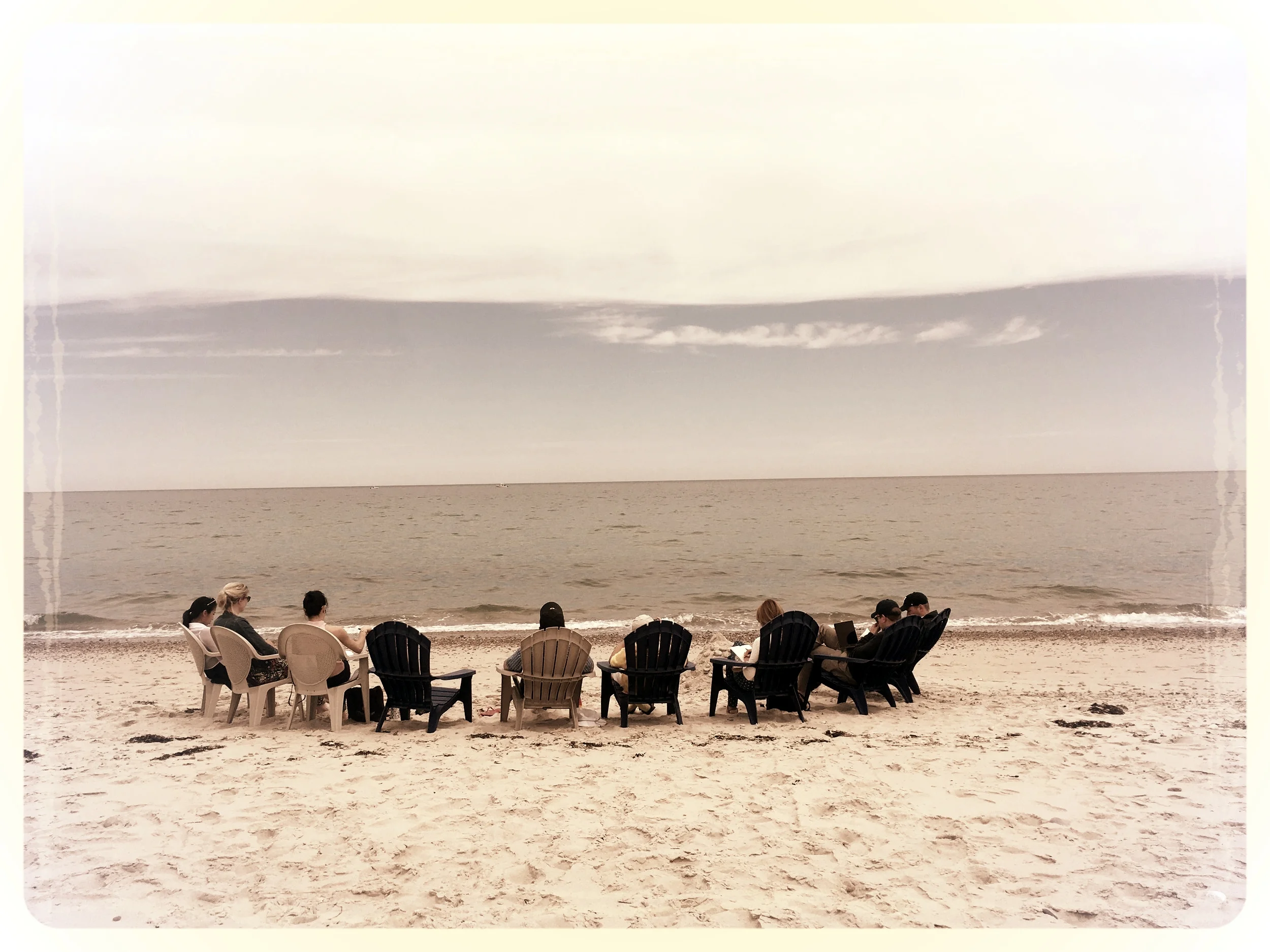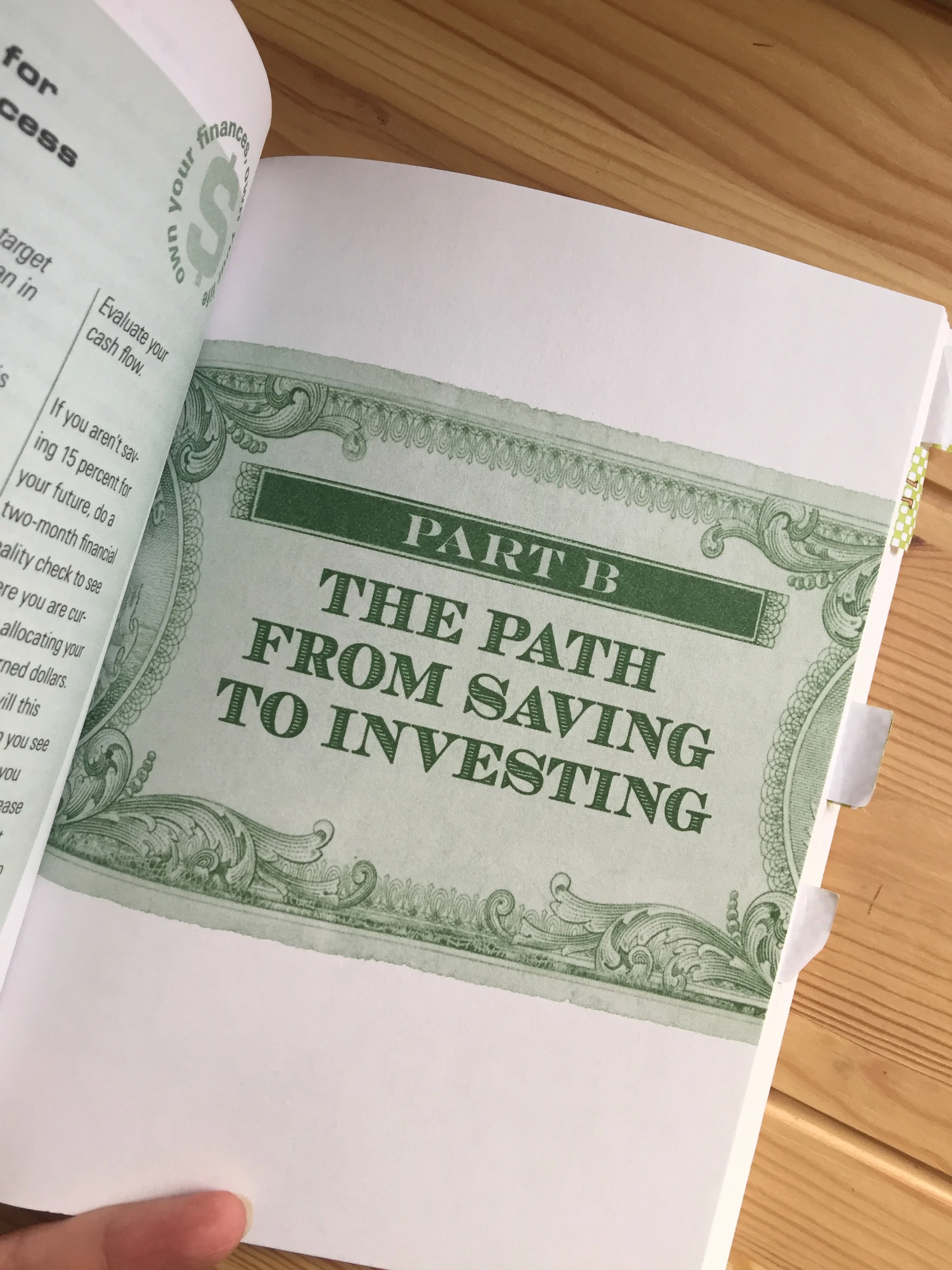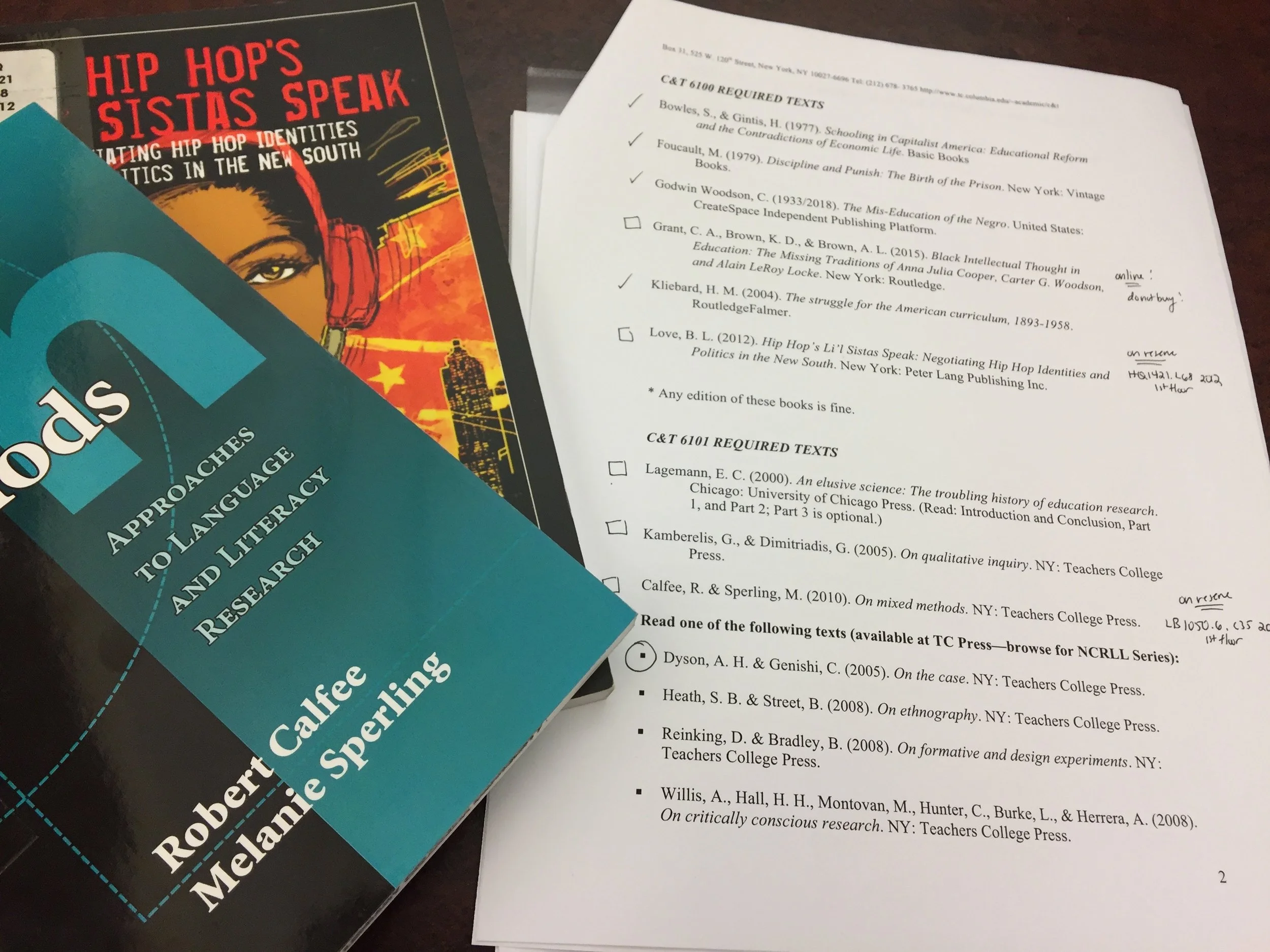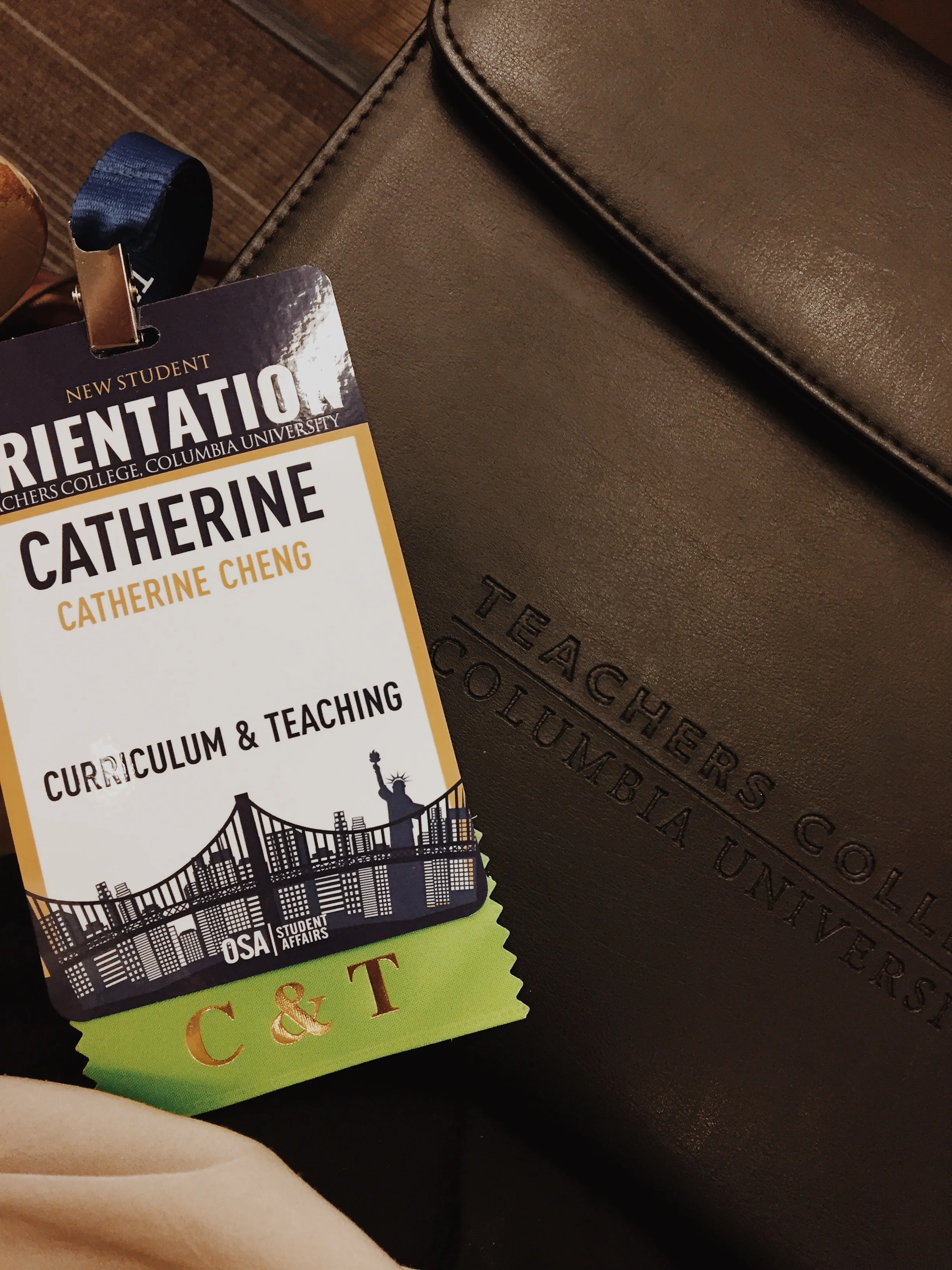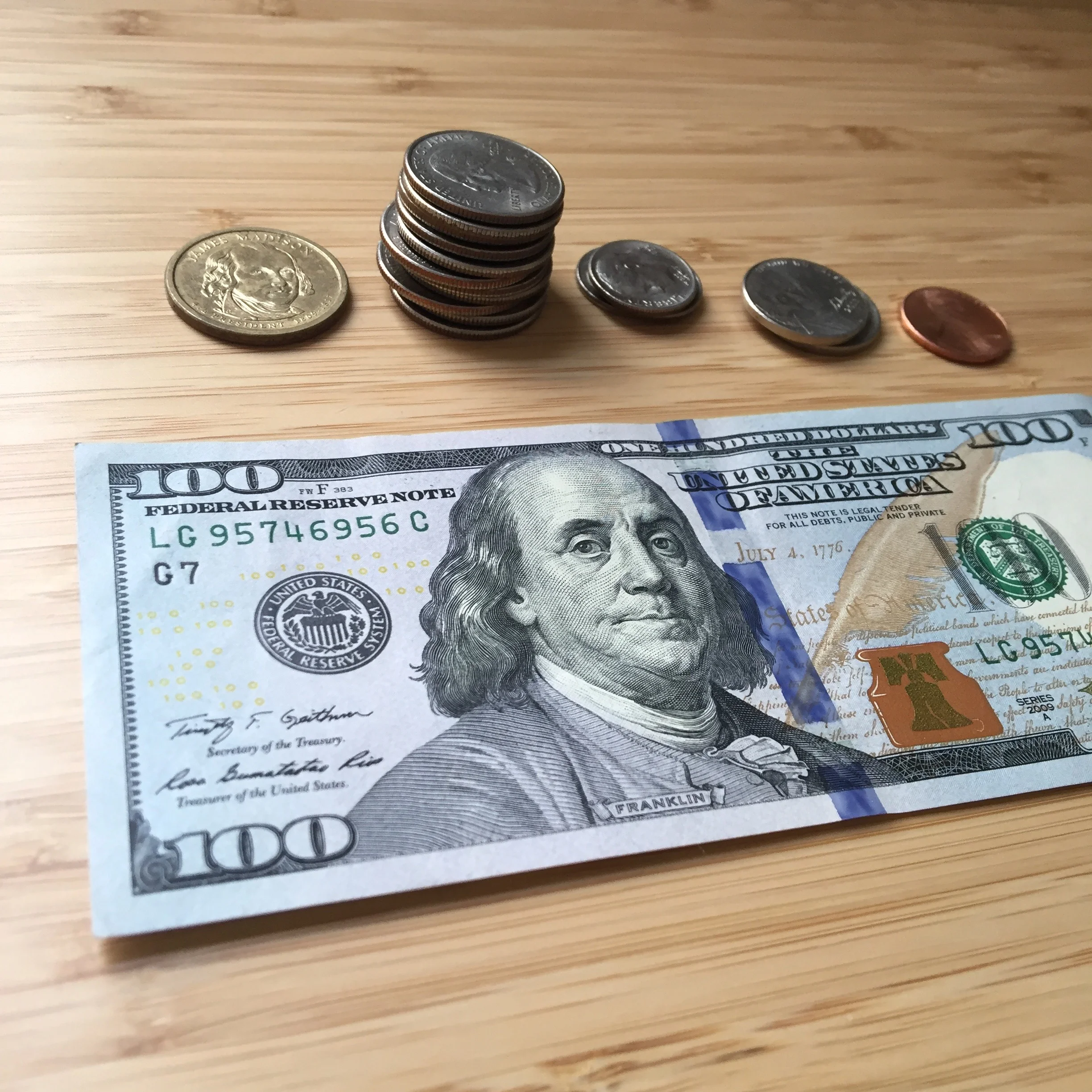Transitioning to Graduate School Life (and to a student-friendly budget)
I was first introduced to the concept of a “money diary” or “tracking your expenses” by Manisha Thakor, a Wellesley alum whose book “On My Own Two Feet” opened my eyes up to the world of personal finance. During “wintersession” of 2009---i.e., the period of a three weeks between the fall and spring semesters at Wellesley---I was enrolled in a complimentary personal finance course provided by the Center for Work and Study (CWS). However, it was also during that wintersession that I met Max (my boyfriend-of-ten-years-turned-fiancé) so I did an awful thing. I wrote an email to the course instructor, a truly lovely woman, and told her I had a high fever and would thus not be returning to Wellesley to attend this course. After hitting the “send” button to that email, I was overcome with guilt. I flat-out lied in that email, but I was also head-over-heels in love, and I had not felt this way until that day I met Max. So in weighing my two options (pursuing love versus pursuing financial freedom), I chose love. OK, this all sounds super melodramatic, but there was a lot on my mind at that point. I was a super ambitious, more Type-A than Type-B, and hated telling lies, even if they were not malicious. The course instructor wrote back promptly, wished me well, and to my relief, said she would offer the spot to another young woman who was eager to learn about finances. Phew.
Fast forward four years. I secure my first official position as a NIH post-baccalaureate research fellow in the Department of Chemistry at Wellesley. Unofficially, I was also a teaching assistant and lab manager. This job opportunity provided by my biochemistry professor was a blessing. Not only did this job allow me to support myself financially (paying for rent, education courses, teacher certification tests, living expenses, etc.), but it also came with perks, such as health insurance and an employer-sponsored retirement plan. I was under the age of 26 at that time, so I was still under my parents’ health insurance, but I took advantage of the retirement plan. My employer, Wellesley College, was generous enough to match up to 3% of my own contributions, which is not a lot compared to what other industries offer (I hear some tech industries match up to 50%?!), but who can complain about free money? I knew nothing about retirement at that time beyond what was stated in brochures I received from Human Resources the day I signed the paperwork for my new job.
So, I signed up for a TIAA workshop. The workshop took place on campus and, to my pleasant surprise, was packed with mostly women. Sure, Wellesley College is a women’s college, but that does not mean all of its employees are women too. Scanning the room, I realized that I was unambiguously among the youngest women there. This gave me a boost of confidence; I knew I was doing something right for myself by getting started early. The workshop was a success---I learned the basics of what it means to invest, and left with some specific takeaways that I could apply immediately. One of the practical skills I learned was to utilize Mint, which is an online platform that allows you to monitor all of your financial accounts in one place and to create budgets and goals. (As an aside, I still use Mint today, but have less time to review my transactions on a regular basis. I am, also, aware of the privacy concerns that some people have expressed regarding online sites, including Mint, that keep track of spending. I feel conflicted at this point, but think I will keep my account open.) Immediately after the workshop, I went on the CWS website and tried to look for the personal finance book for the course I had unenrolled from. The book arrived within a week (there was no Amazon prime) and my personal finance journey began.
It is now year 2018 and there is no shortage of personal finance advice on the internet. In fact, it seems to be a rather trendy topic on blogs and podcasts alike. I’m all for free online education, but if I were my old self today, I would find the mass information overwhelming. Where do you even begin? What are trustworthy sites? Which sites are student-friendly? At my old school, during advisory, I would frequently share financial advice with my advisees (high school students). I did not teach a formal lesson, but my advisees and I would engage in casual conversations about all things money. There was definitely an interest, and there were plenty of unknowns for these students.
I’m sharing all of this in this particular post because I am trying to find an authentic and conversational way of relaying information about money management. Money is something we rarely talk about at home; my parents always told me to focus on my studies and not worry about making money. “Hone your skills, develop your career, and the money will come,” they would say to me. Oh, but I did stress about money. Until this day, I am indebted to my parents for supporting me through my undergraduate years. It is largely because of their savings and their investments in me that I do not have student debt. I could not imagine starting graduate school with student loans to repay. I was very well aware of what my parents gave me, so I wanted to do everything I could to be as financially independent as possible. At 22 years of age, I promised myself that I would not ask my parents for more money; they paid for my college, and it was time that I paid for myself for the years to come.
Thus, this post marks the beginning of my “diary” relating to my finances as a 28-year old starting a doctoral program. Admittedly, my financial diary would carry greater relevance if I were to share my financial journey as a 22-year old fresh out of college; however, my notes from my early twenties are scattered and my recollections are hazy. Therefore, I do not trust myself in reporting everything accurately. In addition, much has changed in six years in the world of money and finance, so I think the best solution is for me to share my journey starting today. Take away what you want from these money posts, and know that I am not a certified financial advisor in any way. My objective is not to outline steps for a secure financial future, but rather to open your eyes to my world, in which I strive to maintain financial independence. At the heart of these posts, I want you to know that I am just a high-school-teacher-turned-graduate-student who wishes to share her journey navigating student life and a student budget in an expensive city.
If there is interest, I will consider making this a regular “weekly spending series,” in which I openly share my expenses for a given week, new learning in personal finance, and my thoughts with regards to budgeting, saving, and investing for the future. As a full-time doctoral student living on a limited stipend (but also on a decent amount of savings) in New York City, managing my money wisely is important to me.
Let’s begin.
My profile:
I am sharing this rather personal information for transparency reasons, so that you are aware of the larger context of my spending. Privacy is important for me, but I also find it important to provide a frame to examine my financial profile as a graduate student. So here is my attempt to balance the two. I guess I’ll figure out as I go what to share more of, and what to leave out in the future.
Occupation: Doctoral student in the Department of Curriculum & Teaching at Teachers College (I will likely be here for a very long time)
Field: Education
Location: New York, NY
Age: 28 (as of September, 2018)
Income Sources: Doctoral Fellowship Stipend (years 1-3 of graduate school; I’m working as a research assistant this year), tuition points to cover majority of my tuition, and two scholarships to the rest of my tuition (grad school isn’t cheap!); I also tutor students privately.
School-Specific Expenses for Year 1:
Books & Supplies: $1500 estimated (includes cost of a 10.5inch iPad Pro and Apple pencil for note-taking---probably my best investment so far this year!)
College Fee: $916 (equivalent to the “activity fee” at most colleges)
Columbia Health Fee: $1122 (required; separate from medical insurance; sigh)
Columbia Health Insurance, Fall: $1503
Columbia Health Insurance, Spring/Summer: $2444
Dental Insurance: $0 (I decided not to enroll; will be paying out-of-pocket for cleanings)
Autumn Tuition: $14,715 (9 credits)
Spring Tuition: $14,715 estimated (9 credits again, but I will increase to 12 credits in Year 2)
On-Campus Room & Board: $0 (I’m living off-campus and do not have a “meal plan”; see monthly expenses below)
Transportation: $1452 estimated (not including flights home for holidays)
Transcript Fee: $70
TOTAL = $36,937 estimated (not including room & board, i.e., living expenses)
Monthly Expenses:
Rent: A little more than $2,000 after it being subsidized by the hospital (Max’s employer); we share the apartment expenses
Renter’s Insurance: $0 (opted out; hopefully this was not a mistake…)
Student Loans: $0 (I received financial aid, outside scholarships; rest was paid by parents---thank you, mom and dad)
Cell phone: $0 (I’m still on my parents’ family plan; now, when I think about it, I really ought to pay for my line at least)
Utilities: Water and garbage are included in our rent. Together, we pay approximately $50 for gas and electricity (this is only a third of what we are used to paying; I would like to thank my neighbors for blasting their AC during the summer months)
Internet: $49.99 shared (first month was $109.99, which included installation, modem rental, and other fees)
Cable: We decided against cable TV
Laundry: $20 on average, shared (we have a washer/dryer unit on each floor of the apartment building; $1.95 per load, wash or dry; this is not counting dry cleaning, however, which is crazy expensive in my opinion)
Subscriptions: $8 for digital subscription to the New York Times, shared (student/educator rate); Amazon prime (Max covers this); $7.99 for Hulu (we might cancel soon, now that we finished The Handmaid’s Tale and there are no more World Cup games to watch); $0 for various magazine subscriptions like The New Yorker, Vogue, Home & Gardens (purchased with points/miles); I recently cancelled Audible, but might go back on
Health Insurance: $422; I miss my old employer-sponsored health plan! :(
Dental Insurance: $0; I opted out this year (and keeping my fingers crossed that I don’t get any cavities) but my health insurance covers a one-time cleaning/exam/X-rays; I plan to pay out-of-pocket for an additional cleaning or two
TOTAL = $1,486 estimated for my half (not including groceries, takeout food, eat-in food, coffee shop study sessions, etc.)
(Monthly) Savings:
403(b): $0; I no longer have an active employer-sponsored retirement plan but my two older accounts are still open and the money is slowly growing
Roth-IRA: I plan to contribute the maximum $5500 (for my age bracket) before tax season
Individual Brokerage Accounts: I contribute $300 monthly to my Merrill-Edge account and $200 monthly to my Fidelity account on top of what I already have invested; I do not have a financial advisor, so I’m managing my investments on my own and learning along the way; FYI, I do not invest in individual stocks but rather in mutual funds
Online Savings Account: I contribute $200 monthly to Ally Savings (0.85% interest rate); I will occasionally contribute to my Discover Savings account (0.80% interest rate) and Discover 12-month Certificate of Deposit account (1.98% interest rate)
TOTAL = $1,158 on average (basically, whatever is leftover from my stipend after my expenses, I save/invest the rest)
Now that you have the context of my finances, I will be sharing my first “Weekly Spending” post in a few days. Stay tuned and let me know if you have any questions.
PS. I will be sharing more about 403(b), 401(k), Roth-IRA, IRA and individual brokerage accounts in my upcoming posts. My plan is to embed the “lessons” into my narratives so I don’t bore you entirely.
Thanks for reading and have a wonderful weekend,
Catherine
